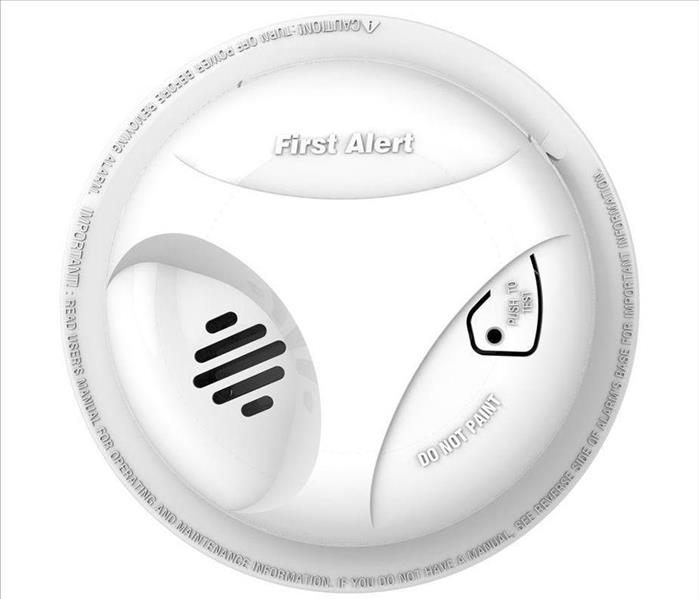The Importance of Smoke Alarms
1/25/2018 (Permalink)
Smoke Alarms Save Lives
Let’s get straight to the point Smoke alarms save lives. Smoke alarms that are properly installed and maintained play a vital role in reducing fire deaths and injuries. If there is a fire in your home, smoke spreads fast and you need smoke alarms to give you time to get out.
Here's what you need to know
- A closed door may slow the spread of smoke, heat, and fire. Install smoke alarms in every sleeping room and outside each separate sleeping area. Install alarms on every level of the home.
- Smoke alarms should be interconnected. When one sounds, they all sound.
- Larger homes may need extra smoke alarms.
- Test your smoke alarms at least once a month. Press the test button to be sure the alarm is working. If the alarm still does not work replace the batteries, and if it still doesn’t work replace it.
- There are two kinds of alarms. Ionization smoke alarms are quicker to warn about flaming fires. Photoelectric alarms are quicker to warn about smoldering fires. It is best to use of both types of alarms in the home.
- When a smoke alarm sounds, get outside and stay outside. Don’t wait, the life you and your family may be on the line.
- Replace all smoke alarms in your home every 10 years whether they are still working or not.
Facts and figures about smoke alarms
- In 2009-2013, smoke alarms sounded in more than half (53%) of the home fires reported to U.S. fire departments.
- Three of every five home fire deaths resulted from fires in homes with no smoke alarms (38%) or no working smoke alarms (21%).
- No smoke alarms were present in almost two out of every five (38%) home fire deaths.
- The death rate per 100 reported home fires was more than twice as high in homes that did not have any working smoke alarms compared to the rate in homes with working smoke alarms
- In fires in which the smoke alarms were present but did not operate, almost half (46%) of the smoke alarms had missing or disconnected batteries.
- Dead batteries caused one-quarter (24%) of the smoke alarm failures.
The moral of the story is make sure you have the proper number of smoke alarms in your home and they are all properly working.
For more information on smoke alarms and other fire protection related information visit the website for National Fire Protection Association.






 24/7 Emergency Service
24/7 Emergency Service
